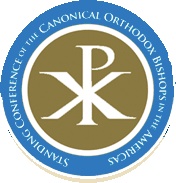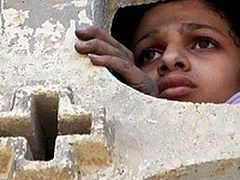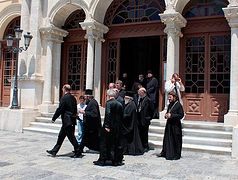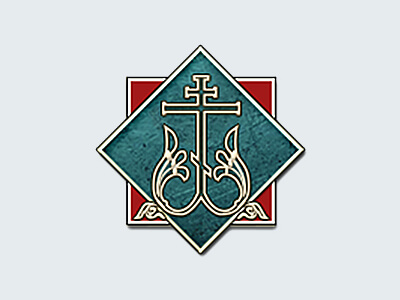
In addition to the co-chairs, the Consultation includes Orthodox representatives Father Thomas FitzGerald, dean of the Holy Cross Greek Orthodox School of Theology in Brookline, Massachusetts (Secretary); Father Nicholas Apostola, pastor, St. Nicholas Romanian Orthodox Church in Shrewsbury, MA; Father John Erickson, former dean and professor of canon law and church history at Saint Vladimir's Orthodox Theological Seminary in Crestwood, NY; Susan Ashbrook Harvey, Ph.D., Willard Prescott and Annie McClelland Smith Professor and Chair of Religious Studies, Brown University, Providence, Rhode Island; Father James Dutko, pastor of St. Michael’s Carpatho-Russian Orthodox Church in Binghamton, NY; Paul Meyendorff, Ph.D., Alexander Schmemann professor of liturgical theology and associate dean for academic affairs, St. Vladimir’s Orthodox Theological Seminary, Crestwood, NY; Father Alexander Golitzin, professor of theology at Marquette University, Milwaukee; Robert Haddad, Ph.D., Sophia Smith Professor Emeritus of History at Smith College in Northampton, MA; Father Robert Stephanopoulos, pastor emeritus of the Greek Orthodox Archdiocesan Cathedral of the Holy Trinity, New York; Father Theodore Pulcini, associate professor of religion at Dickinson College, Carlisle, Pennsylvania; and Father Mark Arey, Greek Orthodox Archdiocese, New York, (staff).
The document is unprecedented in its detailed description of how the Orthodox and Roman Catholic Churches could (and “should”) unite. The central theme was the historical view of papal authority from both sides, and how both Churches should be re-structured in order to “overcome” this difference. The document calls for a restructuring which would make both sides resemble each other more, so that ultimately total unity could be achieved.
The conference recognized the role of Bishop of Rome as the central point of disagreement: “It seems to be no exaggeration, in fact, to say that the root obstacle preventing the Orthodox and Catholic Churches from growing steadily towards sacramental and practical unity has been, and continues to be, the role that the bishop of Rome plays in the worldwide Catholic communion. While for Catholics, maintaining communion in faith and sacraments with the bishop of Rome is considered a necessary criterion for being considered Church in the full sense, for Orthodox, as well as for Protestants, it is precisely the pope’s historic claims to authority in teaching and Church life that are most at variance with the image of the Church presented to us in the New Testament and in early Christian writings.”
The conference called this difference something rooted in political and social history: “The historical roots of this difference in vision go back many centuries. Episcopal and regional structures of leadership have developed in different ways in the Churches of Christ, and are to some extent based on social and political expectations that reach back to early Christianity.”
Any mention of root differences in spirituality, such as the significantly divergent views on the canonization of Christian saints, is conspicuously missing from the document. Emphasis was placed entirely upon structural and hierarchical differences and future adjustments of the same, in order to achieve a mutual compromise and eventual unity.
For the complete text, see the SCOBA website.



